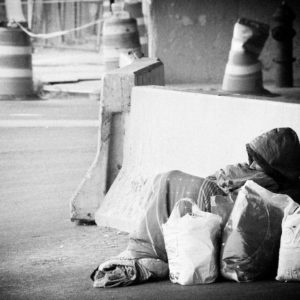When the Trump administration first came into office, it promised to remember the “forgotten man and woman.” We were told we’d have the “greatest economy ever,” that wages would skyrocket, and millions would be lifted from poverty.
Instead, the administration has made the work we do as leaders in the fight against poverty even more difficult.
In May 2019, the Office of Management and Budget proposed a new version of the Official Poverty Measure, which is used to determine eligibility for dozens of critical programs — like the Supplemental Nutrition Assistance Program (SNAP, formerly food stamps), the Children’s Health Insurance Program (CHIP) and the school lunch program.
By unilaterally changing the way it’s calculated, the administration wants to discount millions of people from the official poverty number. It’s mathematical gaslighting to artificially reduce the poverty rate and does nothing but allow the administration to give itself a pat on the back for a job not done.
The rule change hinges on something called “Chained Consumer Price Index (CPI),” which is the new proposed way of calculating cost-of-living changes. It sounds like a technical decision, but it’s actually a moral one.
Chained CPI lowers estimates of inflation by assuming that when costs go up for basic necessities like groceries, low-income people have options to choose from. They can find and buy cheaper products at different stores, and therefore weather rising costs.
But many, many low-income people and families don’t have those choices.
For millions of people, the amount they receive via SNAP will be determined by a formula that doesn’t take the realities and the barriers faced into account. By the administration’s own estimates, around 23.5 million people in the United States live in food deserts — neighborhoods that don’t have access to affordable, healthy food.
The Trump administration is blatantly ignoring the fact that for far too many people, the only “grocery store” available is a Dollar General or Family Dollar. And the “other options” are going to the expensive gas station down the road or waiting for breakfast at school the next day.
Unlike this administration, neither of us is willing to ignore these realities. And, though one of us is guided by Catholic Social Justice and the other by the structure of research and policy, we both witness the same story: the Trump administration is making poverty in America worse.
Masked as a technical tweak to an already overly complex system, changing how the poverty line is calculated in this way means that, the millions of people Trump claimed he wouldn’t forget won’t receive the help they desperately need.
More than 100,000 kids would lose access to free or reduced school meals because of this change. For many of these children, that meal at school may be the only thing they eat that day. You don’t have to be a nun or policy wonk to know that taking food from children is just plain wrong.
We commend Rep. Carolyn Maloney of California, chair of the House Oversight Committee, for calling on members of Congress to hear testimony on how this rule change, and a host of others from the administration, will make difficult childhoods even harder. We hope these hearings help demonstrate the subversive ways this administration has attempted to hurt struggling people and families, especially the harms to those most vulnerable among us — our nation’s children.
Mark 10:13-16 is very clear about how we are to treat the poorest among us: “…do not hinder them; for the kingdom of God belongs to such as these.” We are called to protect our children and to serve our families.
The Trump administration may have forgotten them. But we won’t.

